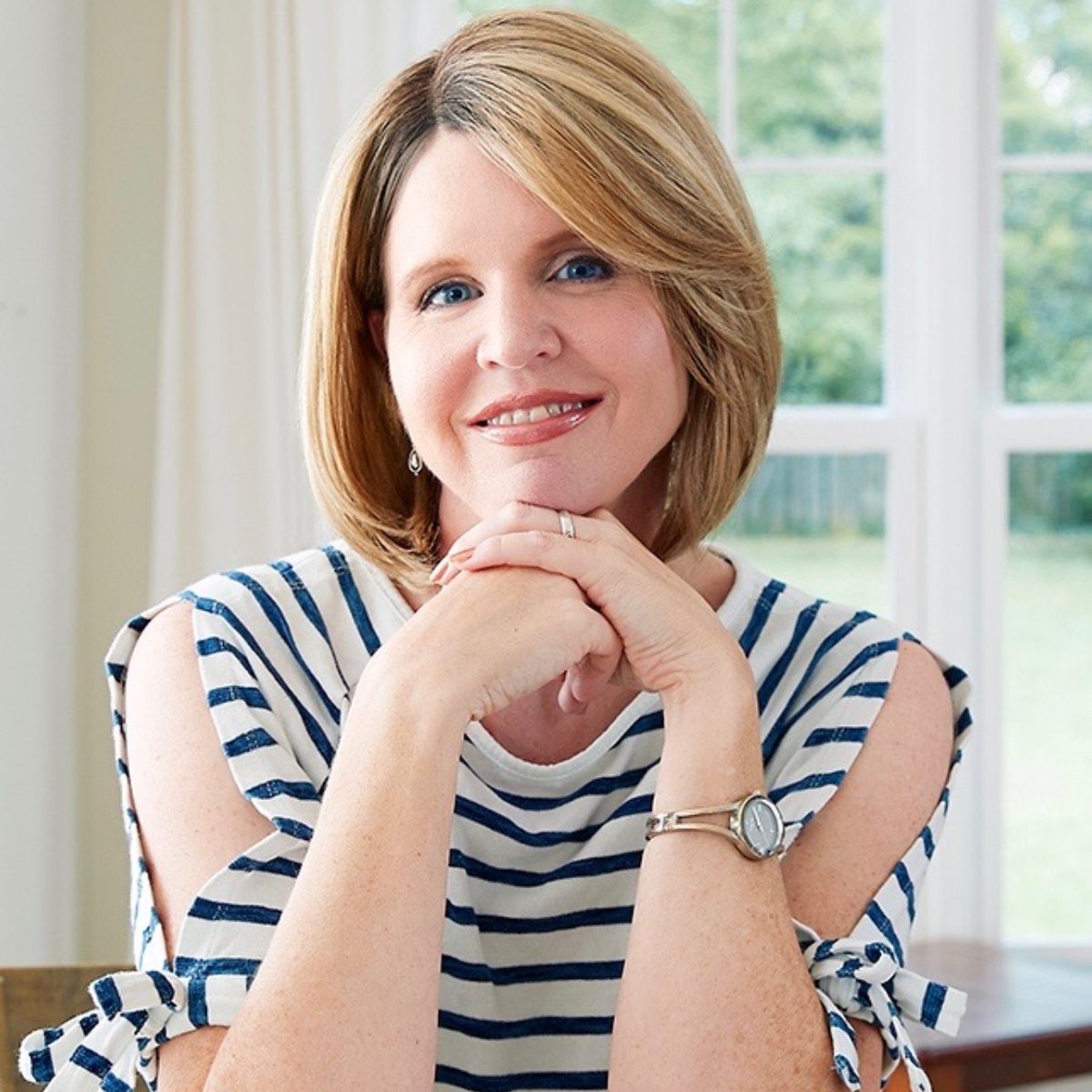In the latest episode of CHRISTIAN PARENT/CRAZY WORLD, I cover the content in this article by addressing how we, as Christians and as parents, must temper the truth we speak in love. At some point, we have all been told to 'speak the truth in love.' Haven't we? But how exactly do we do that? And why? Where in Scripture are we instructed to 'speak the truth in love?' So often we get this wrong in social media, in our churches, and in our families. And the damage can be catastrophic. We have to get this right if we want to be effective in conveying truth. To listen to this podcast, click HERE.
We were pulling into the parking lot of my church when the DJ mentioned a controversy surrounding a burgeoning Christian recording artist. Apparently, she had appeared on a popular daytime talk show and there was an uproar about it. I was waiting to hear what had happened on the show that caused such a stink. What did she do?
Then I realized, with sinking dread, she didn’t do anything. Nothing happened. There was no incident, per say. Her crime was just showing up. Because, you see, the talk show host is gay.
My heart sank. Are we reading the same Bible? I know what Scripture says about that issue and let me be clear, I’m not here to debate or deny that. But who did Jesus hang out with?
To love the lost like Jesus, we need to move in closer.
Who did Jesus get criticized and killed for hanging out with? My Bible says prostitutes. My Bible says adulterers and tax collectors. Who did Jesus pick to start the church? Peter—an ear-slasher and three-time Christ-deniar. Who did He choose to write most of the New Testament? Paul—a terrorist.
In order for Mary Magdalene to receive the life-changing grace of Jesus Christ, He had to come in contact with her. He had to speak to her. Jesus treated this demon-possessed woman with compassion and dignity, despite her life choices. He treated her with love before her heart changed, while she was still living in sin. When all the religious leaders of His day walked by her without saying a word, afraid that they would be tainted by her immorality, Jesus didn’t. He embraced her. His love changed her. And He vowed to tell her story wherever His was told.
But she never would have had a story to tell if He hadn’t first reached her with His love and kindness.
To speak truth without love is harmful. To share truth through love gives life.
I would never suggest that we compromise correct theology and disregard God’s standard. Jesus didn’t do that. But He knew that in order for people to receive what is right, they first had to experience His radical love.
Consider this: Jesus did not address the fact that Zacchaeus was a thief first. First, He went to Zacchaeus’ house and had dinner with him when no one else would (Luke 19).
Jesus did not address the fact that the woman at the well was in sexual sin first. First, He had a conversation with this foreigner—considered filthy by the Jews—and offered her living water when no one else would (John 4).
Jesus did not address the sin of the “woman caught in adultery's” first. First, Jesus defended her against the hypocrites clinging to the stipulations of the law when no one else would (John 8).
It was the Pharisees who insisted on being correct first. Not Jesus. It is self-righteousness that insists on being right first. Not love.
Love shows compassion first. It offers dignity first. It builds trust first. It genuinely cares first. It is patient and humble and kind—first. Then, and only then, can love show what is really true.
This is Jesus' example. It should be ours as well.
"But God demonstrates His own love for us in this: While we were still sinners, Christ died for us.” (Romans 5:8 NIV)
Gospel-filled love cares more about people than reputation.
What does a Christian accomplish by refusing to have a public conversation with a non-Christian? Certainly not the kind of faith our Lord exemplifies. Jesus cared nothing for His reputation. He cared about people—all people, of every race, nationality, gender, orientation, and sinful persuasion.
We don’t deny who God is by sitting down with sinners. We deny who God is when we avoid them out of dislike, a lack of mercy, or fear.
And let us not forget—we are sinners.
Saved by a God who could have stayed in heaven with the glorified and sanctified, but He didn’t. Instead, He chose to hang out with us. He chose to come down here and get dirty. He put our dirt all over Himself so that we could be clean.
How, then, can we insist on others being clean before we will honor them with our presence?
The Apostle Paul, a Christian-killing terrorist before he was met with the radical love of Jesus, made it clear that as Christ’s followers, we are not to judge the world (1 Corinthians 5:12). That is God’s job. Not ours. We do hold those within the church accountable and point them to God’s standard, but we are to LOVE those outside the church, as He does. We are to speak to them in public, like He did. We are to defend them against hypocritical attacks, like He did. We are to converse with them in their homes, like He did. And, dare I say, if the opportunity presents itself, we should talk to them on their talk shows.
We do this with the hope that their hearts will be softened enough to receive His Truth, to receive His salvation.
Just as God drew us near by his kindness, why do we try to draw others by His standard?
There is a term in journalism called “burying the lead.” It happens when the most important part of the story is hidden so deep that it might as well be six feet under. As Christians, if we ever want to reach the lost in our cultures, we’ve got to stop burying the lead.
Let’s be clear about this because Jesus certainly was—the lead of the Gospel is God’s overwhelming love—not His law. That is not to say that God’s standard isn’t important. It is. But it’s not the lead.
It is the kindness of God that draws us to repentance, not His standard. If God’s kindness drew us, why do we want to use His standard to draw others? That is not how His standard works.
His standard purifies those who have first been drawn by His kindness. His standard will injure those who have not.
Kindness doesn’t deny Truth. God’s love doesn’t deny a standard. God’s standard exists to protect us from what harms us. The standard is itself an act of love; it should never be used to harm those whom God loves.
Without His love, we couldn’t possibly live by His standard, nor would we want to. Without His love, His standard is nothing more than a weapon.
Love without truth is a lie, but truth without love is a weapon.
Hurling the law at someone who doesn’t have the grace to live by it will injure them and push them away from the God who loves them. This is precisely why Paul tells us not to judge the world. Preaching the law without first expressing genuine love shows a self-righteous concern for being right, not a true desire to foster righteousness.
We don't reach the world from a distance with sandwich boards and megaphones. We reach the world by having real conversations and showing real concern. That doesn't mean that we water down Truth, but it does mean that we offer Truth after expressing our genuine love, like Christ did. Christ went to Zacchaeus' house, He spoke to the woman at the well, and He defended the woman caught in adultery first. He loved them before addressing the issue of their sin.
If I speak in the tongues of men or of angels, but do not have love, I am only a resounding gong or a clanging cymbal. If I have the gift of prophecy and can fathom all mysteries and all knowledge, and if I have a faith that can move mountains, but do not have love, I am nothing. (1 Corinthians 13:1-2, NIV)
In this passage, Paul clearly tells us that we can be right theologically, and yet still be wrong if we do not love. He tells us not to weaponize the Gospel by presenting it without first showing compassion. He tells us not to bury the lead. If we do, we may be right onpaper, but wrong—oh-so-wrong—in practice.
The message of Scripture is clear: we must love people first. Then humbly lead them to the truth.
Like Christ did.

Listen to Catherine's FREE podcast - Christian Parent, Crazy World, available now at LifeAudio.com!
Photo credit: © Getty Images




